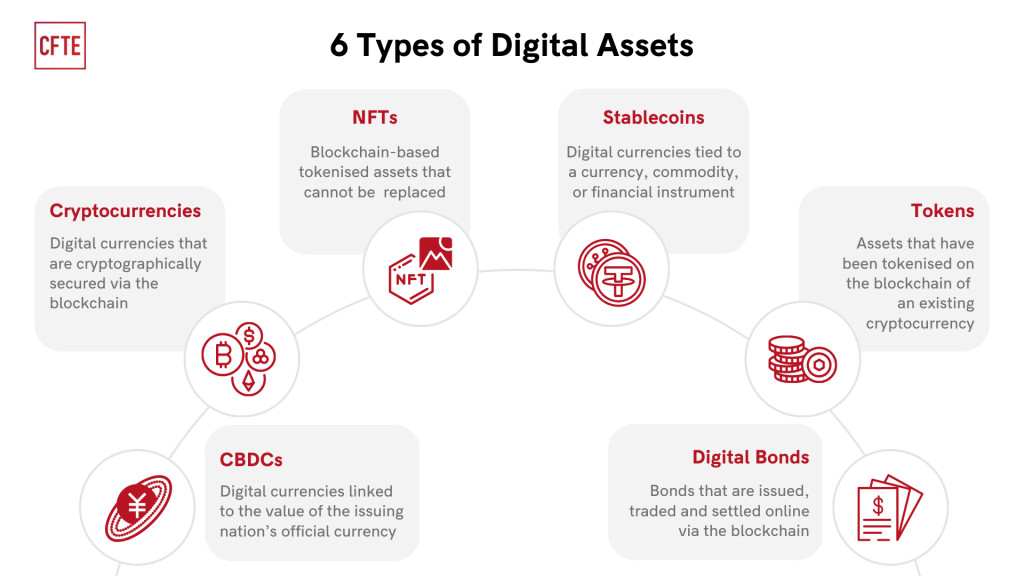Crypto Accounting: Navigating the Financial Terrain of Cryptocurrencies
In Brief
The emergence of cryptocurrencies has transformed financial frameworks through their anonymous and decentralized nature. Many businesses are now integrating crypto into their operations for investments and payroll; however, they must stay compliant with regulations, fulfill tax obligations, and maintain transparency in their dealings.

Cryptocurrencies have fundamentally altered the financial sector. The concept of conducting transactions anonymously and without a central authority has significantly reshaped our perception of finance and trading.
Their popularity is growing With innovations in blockchain technology, we see shifts across various sectors. The outcome? Many companies are now harnessing cryptocurrencies for diverse purposes, like making investments and compensating their workforce.
Yet, handling finances is serious business. Organizations are required to comply with local, state, and international laws, fulfill tax responsibilities, and be forthcoming about their cryptocurrency usage.
This article aims to simplify key elements of crypto accounting, assisting businesses in staying compliant.
Basics of Digital Assets
The distinction between tangible and digital assets is obvious. You can't physically handle digital assets; nevertheless, they're both regarded as valuable investment opportunities. Digital assets encompass:
- Central Bank Digital Currency (CBDC)
- Non-fungible tokens (NFTs)
- Cryptocurrencies
- Digital bonds
- Stablecoins
- Tokens

Photo: CFTE
As innovations proliferate, we can expect an increase in the variety of digital assets. Initially, cryptocurrencies dominated the landscape, but that has changed over the years.
Because all cryptocurrency transactions, tokens, and NFTs are logged on the blockchain, they offer a level of security.
We won't dive into cryptocurrency basics, but the transparency provided by blockchain technology allows anyone to trace cryptocurrency transactions. Thanks to blockchain's unique properties, digital assets are seen as secure.
Additionally, they're not confined to conventional financial services. You can utilize a web wallet to access and manage your assets with just an internet connection and a device or opt for physical wallets for storage.
However, the landscape comes with risks including high volatility and cyber threats. While you can experience physical theft, mismanaging your digital currencies could result in losing all your savings.
The unpredictable nature of cryptocurrencies often discourages potential investors. Their volatility complicates accounting and valuation tracking. Luckily, there are various software solutions and knowledgeable accountants available to help manage your crypto finances.
Exploring Methods for Acquiring and Protecting Cryptocurrencies
There are multiple avenues for acquiring cryptocurrencies. You can select from a range of centralized or decentralized exchanges and buy the desired amount of cryptocurrency.
This aspect of cryptocurrency simplifies accounting processes, requiring you to remember just essential details about the acquisition, like the date, the value of digital currencies at the time, and how much you invested.
In earlier times, mining was a common method for acquiring cryptocurrencies. Although anyone can start mining today , today it requires significant investments in equipment to mine coins like Bitcoin, and with the halving process, the available supply is dwindling.

Photo: Investopedia
If you choose to mine cryptocurrencies, recognize the holdings as an asset on the date you acquire them. Similar to mining, any coins earned through staking—by locking your digital currencies in a node—should also be recorded properly.
Tokens and coins can also be acquired through initial coin offerings or initial dex offerings. In both scenarios, you're investing in tokens or coins, and accurate record-keeping of these transactions is essential.
Bear in mind that tokens and cryptocurrencies can have different classifications. Some jurisdictions differentiate between utility tokens and security tokens. It's important to be aware of the regulations affecting you and categorize these tokens as either revenue or equity.
While cryptocurrencies hold significant value, they are also susceptible to cyber threats. Over the long term, implementing strategies for the protection of your crypto assets is crucial.
Effective strategies include:
- Utilize specialized services to bolster security.
- Diversify your crypto holdings to minimize risks.
- Employ offline storage methods such as cold wallets to safeguard your assets.
Beyond cybersecurity, it’s also vital to consider legal protection strategies. Establishing an LLC to manage your cryptocurrency can create a legal firewall between your personal and business assets. Different regions have unique requirements and LLC costs , making it critical to comprehend the associated costs. Typical expenses may include registration fees, annual report charges, and ongoing compliance costs, which vary based on your LLC's location.
Accounting for Cryptocurrencies
To effectively account for cryptocurrencies, start by assessing the current values of your crypto holdings. Given the frequent market fluctuations, pay close attention to the purchase and selling prices.
A useful method for establishing the value of your assets is through fair value measurement . This approach values a crypto asset based on its current market rate. Gathering information on popular cryptocurrencies such as Bitcoin, Ethereum, and BNB is easier than obtaining data on various altcoins.

Photo: CoinMarketCap
Another crucial factor is evaluating market value relevance. This understanding allows you to ascertain your assets' worth by acquiring data on active market conditions.
In addition to fair value assessment, you should also evaluate cost-based accounting , which represents the price at which you acquired your financial assets. The final method involves impairment accounting, which takes into account the value of cryptocurrencies when their market value decreases below the cost.
While it's unlikely you'll need to justify every crypto transaction you've made, it's essential to document information related to how you acquired the asset and for what amount you sold or exchanged it.
Even financial transactions are governed by different laws and regulations between individuals and businesses, meaning you need to consider how central authorities regulate cryptocurrency transactions in your particular case.
Using Crypto for Home Loans
The cryptocurrency sector has evolved immensely over the last ten years, with private and public blockchains emerging in sectors like healthcare and technology. Additionally, traditional banks and financial institutions are starting to adopt cryptocurrencies.
For instance, purchasing a house using cryptocurrency is now possible. Some lenders accept crypto as collateral for mortgage loans . This allows you to retain your digital assets while securing a loan for a physical property.
This presents a novel opportunity to leverage your crypto in a way that translates into a living space. However, be mindful of the rapid fluctuations in crypto prices, as they can influence your mortgage terms. It’s crucial to understand the market's volatility before pursuing this type of loan.
Ensure Compliance with Crypto Accounting
Established financial institutions have existed for decades. While they have their drawbacks, they are subject to strict regulations and adhere to established protocols. Although cryptocurrencies have gained popularity, they are not yet mainstream.
Governments are gradually working on regulating cryptocurrencies and discovering methodologies to make the environment more accommodating for users. This process will take time, with some nations advancing more swiftly than others.
In conclusion, it's vital to be aware of how your respective government regards cryptocurrencies and how to accurately record and report any gains or losses associated with them.
Disclaimer
In line with the Trust Project guidelines , please be advised that the information provided on this page does not constitute legal, tax, investment, financial, or other types of advice. It’s essential to invest only what you can afford to lose and seek independent financial guidance if you have any uncertainties. For further details, please consult the terms and conditions along with the support resources provided by the issuer or advertiser. MetaversePost is dedicated to offering precise, impartial reporting; however, market conditions may shift unexpectedly.







